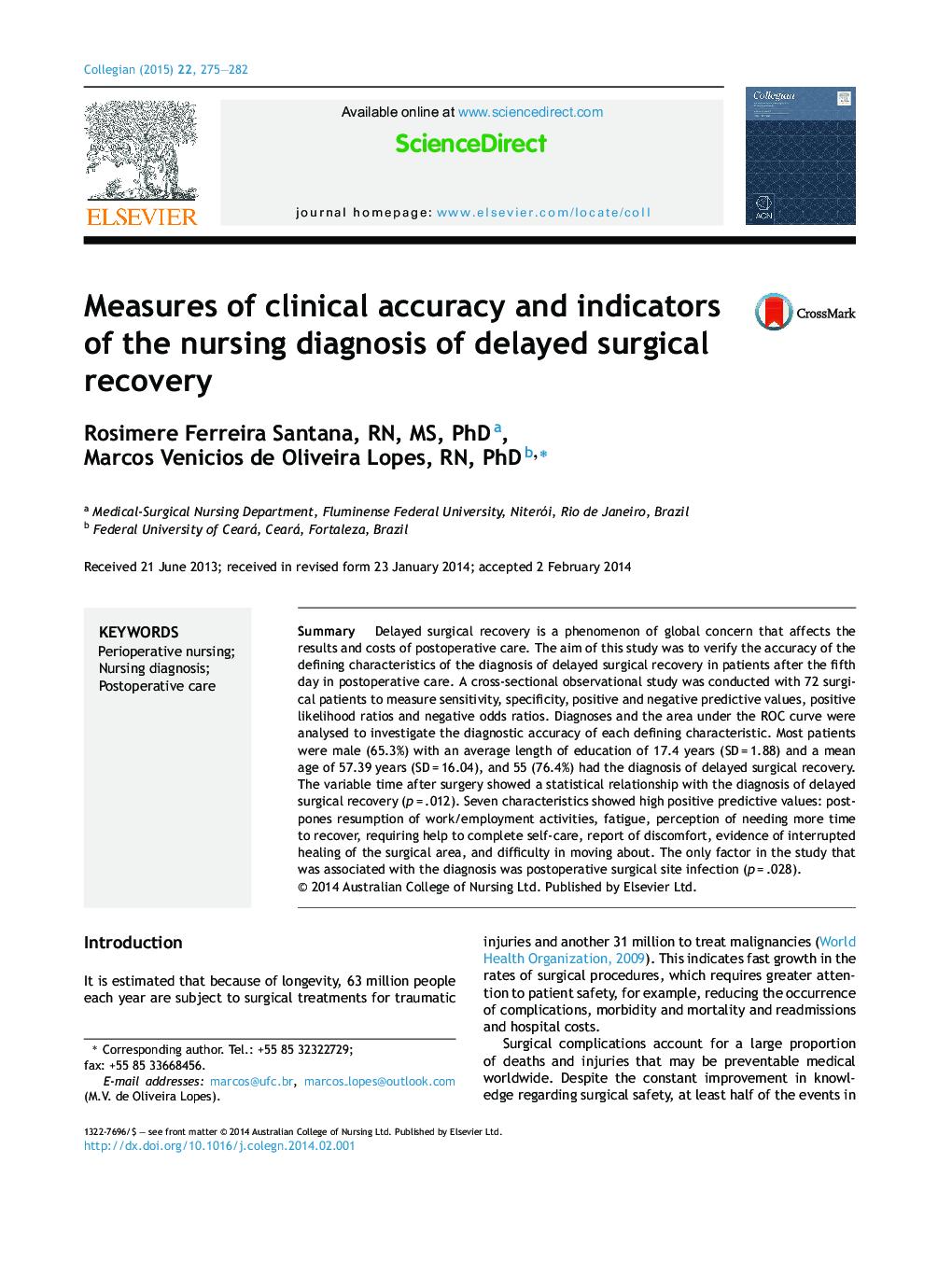| کد مقاله | کد نشریه | سال انتشار | مقاله انگلیسی | نسخه تمام متن |
|---|---|---|---|---|
| 2646138 | 1138833 | 2015 | 8 صفحه PDF | دانلود رایگان |
SummaryDelayed surgical recovery is a phenomenon of global concern that affects the results and costs of postoperative care. The aim of this study was to verify the accuracy of the defining characteristics of the diagnosis of delayed surgical recovery in patients after the fifth day in postoperative care. A cross-sectional observational study was conducted with 72 surgical patients to measure sensitivity, specificity, positive and negative predictive values, positive likelihood ratios and negative odds ratios. Diagnoses and the area under the ROC curve were analysed to investigate the diagnostic accuracy of each defining characteristic. Most patients were male (65.3%) with an average length of education of 17.4 years (SD = 1.88) and a mean age of 57.39 years (SD = 16.04), and 55 (76.4%) had the diagnosis of delayed surgical recovery. The variable time after surgery showed a statistical relationship with the diagnosis of delayed surgical recovery (p = .012). Seven characteristics showed high positive predictive values: postpones resumption of work/employment activities, fatigue, perception of needing more time to recover, requiring help to complete self-care, report of discomfort, evidence of interrupted healing of the surgical area, and difficulty in moving about. The only factor in the study that was associated with the diagnosis was postoperative surgical site infection (p = .028).
Journal: Collegian - Volume 22, Issue 3, September 2015, Pages 275–282
